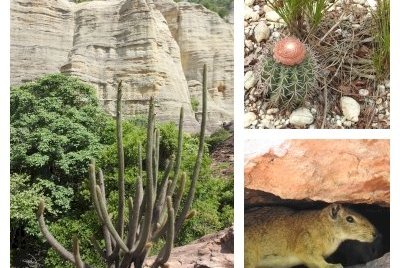Brazil
Serra da Capivara National Park
Serra da Capivara National Park protects a mountain range known for its Caatinga shrubland. Water is scarce in the area. The park holds many prehistoric rock paintings, suggesting it was more densely populated in the pre-Columbian era.
Site Info
Official Information
- Full Name
- Serra da Capivara National Park and Permanent Preservation Areas (ID: 1125)
- Country
- Brazil
- Status
-
Removed from tentative list 2025
Site history
History of Serra da Capivara National Park
- 2003: Rejected
- Regarding extension on natural criteria
- 1998: Added to Tentative List
- Added to tentative list
- Type
- Mixed
- Criteria
Links
- UNESCO
- whc.unesco.org
All Links
UNESCO.org
- whc.unesco.org — whc.unesco.org
Community Information
- Community Category
- Natural landscape: Eroded
- Archaeological site: Rock Art
Travel Information
Recent Connections
News
No news.
Community Reviews
Show full reviewsEls Slots
Serra da Capivara National Park
Serra da Capivara National Park (Removed from tentative list)

Serra da Capivara’s natural features have twice been blocked from entering the World Heritage List, but Brazil still keeps them on its Tentative List. The focus is on the semi-arid caatinga biome, which cannot be found outside of Brazil and of which this is one of the prime examples. In addition to the Serra da Capivara National Park (already a WHS for its rock art), the TWHS comprises three other protected areas in the same region.
One cannot visit Serra da Capivara and solely focus on either its cultural or its natural values. All rock art sites for example have cute little guardians: rock cavies, an endemic species of rodents. They are related to the (much bigger) capybaras, after which the park was named but they became extinct here because of the drought. There is no permanent water source in the park, though it can suffer from sudden flooding in the rainy season. When driving around the park, you surely will notice all the drainage canals which have been dug by the park authorities (they’re like inverted speed bumps). This way the park stays accessible all year.
The caatinga “consists primarily of small, thorny trees that shed their leaves seasonally”. There’s a “Before and After”-photo in the visitor center, which shows the huge seasonal differences. In December, I found it lush and green. On my first day in the park, the guide led me to climb to a higher viewpoint, and along the way, we saw an interesting …
Keep reading 0 comments